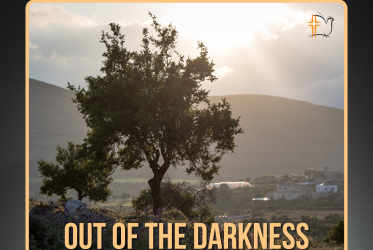*By Claus Grue
For decades, the tourist industry in the Holy Land has been dominated by Israeli tour operators who rely mostly on Israeli hotel owners and land arrangement providers. Visiting Palestinian territories is seldom prioritized and excursions rarely take Palestinian perspectives into account. Most visitors are thus not provided opportunities to familiarize themselves with everyday life of the Palestinian people.
One initiative to change that imbalance is the Alternative Tourism Group (ATG), a Palestinian non-government organization specializing in tours and pilgrimages that include critical examinations of the history, culture, and politics of the Holy Land.
Since its founding in 1995, the ATG has not only sought to promote a positive image of Palestine and its people, but also engaged itself in promoting just peace in the area.
“The objectives of the ATG are much broader than just tourism. It seeks to facilitate interreligious and cross-cultural meetings in order to create a better understanding of Palestinian culture and history”, says Rev. Eilert Lund Rostrup, director of The Karibu Foundation, a cooperating partner based in Norway.
The commercial aspect of tourism in The Holy Land is equally important and by selecting Palestinian providers of accommodations, tour guides, and transportation, the ATG seeks to achieve a better revenue balance between the Palestinian and Israeli tourism sectors. ATG also encourages all tourism operators to abandon exploitative mass tourism and to adopt practices that positively affect the host population.
“For pilgrims, meetings with the Christians in Palestine is central, but we also need a much broader perspective of why we are visiting the Holy Land. We must go beyond the traditional paths and biblical sites in order to truly understand Palestinian life. Being a pilgrim is about seeking God through Jesus Christ, and to see Christ present in the faces of people. So a pilgrimage must be an encounter with people and even more ‘the least of these my brothers and sisters’ (Matthew 25)”, Rostrup explains.
As a member of an ATG resource group he headed to Madaba, Jordan in mid-September to discuss the theology of pilgrimage at a two-day international reference group meeting organized in cooperation with Kairos Palestine.
“We covered a number of issues related to tourism from a global perspective and created an action plan to further raise awareness and encourage others to respond to the Palestinian call to 'Come and see' what is happening on the ground”, Rostrup concludes.
Recent examples of alternative tourism are visits by a group of Afro-American pastors in February this year and a group from a Hawaiian church last month.
“It’s been great to welcome these groups on pilgrimage for justice and peace visits in the Holy land”, says Yusef Daher, executive secretary of the Jerusalem Inter-Church Center, who organized the tours.
He sees the ATG, not only as an important provider of alternative packages for pilgrims and other tourists, but also a driving force for just peace in the area.
USA pastors reflect on Holy Land pilgrimage (WCC press release of 14 March 2017)
Solidarity with churches in the Middle East
*Claus Grue is a communication consultant for the World Council of Churches.







